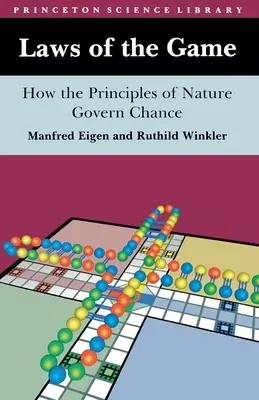Manfred Eigen
(Author)Laws of the Game: How the Principles of Nature Govern Chance (Revised)Paperback - Revised, 11 April 1993

Qty
1
Turbo
Ships in 2 - 3 days
In Stock
Free Delivery
Cash on Delivery
15 Days
Free Returns
Secure Checkout

Part of Series
Princeton Science Library
Part of Series
Princeton Science Library (Paperback)
Print Length
368 pages
Language
English
Publisher
Princeton University Press
Date Published
11 Apr 1993
ISBN-10
0691025665
ISBN-13
9780691025667
Description
Product Details
Authors:
Book Edition:
Revised
Book Format:
Paperback
Country of Origin:
US
Date Published:
11 April 1993
Dimensions:
21.56 x
14 x
2.31 cm
ISBN-10:
0691025665
ISBN-13:
9780691025667
Language:
English
Location:
Princeton
Pages:
368
Publisher:
Weight:
303.91 gm